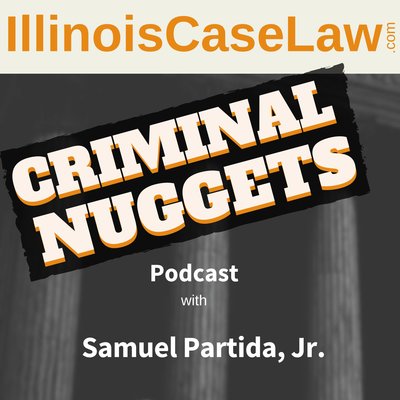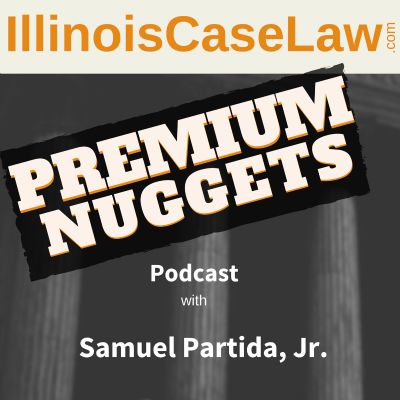Jul 31, 2014
Defendant should not have been stopped because of a U-turn to avoid a traffic safety checkpoint. Defendant’s driving while license suspended conviction and 90 days in jail is reversed.
People v. Timmsen, 3rd Dist., 07/25/2014.
Facts -
U-turn to avoid a traffic safety checkpoint
Defendant was stopped by police after making a U-turn before entering a roadside safety checkpoint. Defendant was then cited and arrested for driving while his license was suspended, in violation of the Illinois Vehicle Code (the Code) (625 ILCS 5/6-303(a)) and for driving left of center at a railroad crossing (625 ILCS 5/11-706(a)) .
Issue
Defendant argues that he did not violate any traffic laws, and the act of making a U-turn to avoid a traffic safety checkpoint, by itself, could not give police articulable suspicion to conduct a traffic stop.
The State conceded no other traffic violation was committed and that avoiding a safety checkpoint itself provides a reasonable articulable suspicion justifying a traffic stop. U-turns are legal in Illinois, as long as the turn can be made safely and without interfering with other traffic. See 625 ILCS 5/11-802.
The question is whether the defendant’s act of making a U-turn to avoid a traffic safety checkpoint, without more, was sufficient to give the police officers reasonable suspicion to stop the defendant.
Analysis
The mere act of avoiding a roadblock is generally not sufficient to constitute reasonable suspicion by itself, and must be coupled with other articulable facts.
There are three examples of when a turn before a safety checkpoint reaches a reasonable suspicion of criminal activity justifying a traffic stop:
(1) when a vehicle fails to stop at the
roadblock;
(2) when a vehicle stops just before the roadblock and the driver
and passenger change places; or
(3) when a vehicle avoids the roadblock in a suspicious manner
(what is considered suspicious has been subject to much debate,
with results varying by jurisdiction)
It is not a crime to avoid an encounter with the police. When an individual is approached by a police officer without reasonable suspicion or probable cause, the person “has a right to ignore the police and go about his business,” and his “refusal to cooperate, without more, does not furnish the minimal level of objective justification needed for a detention or seizure.”
Ruling
Looking at the totality of the circumstances, we find there were no factors to suggest that the defendant was doing any more than going about his business. Although the legality of the defendant’s traffic maneuver was but one factor to consider, there were no other facts suggesting that it was a high-crime area, nor facts suggesting flight, such as speeding, squealing tires, or spraying gravel.
We find that, absent any other suspicious activity, before, during, or after, the U-turn itself did not provide specific, articulable facts that a criminal offense had been or was about to be committed sufficient to warrant the intrusion.



